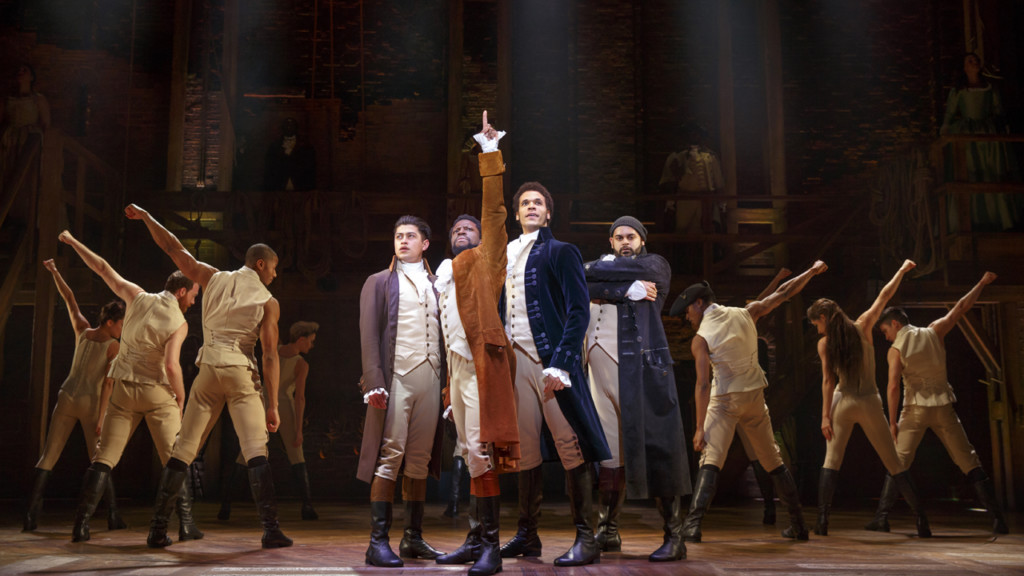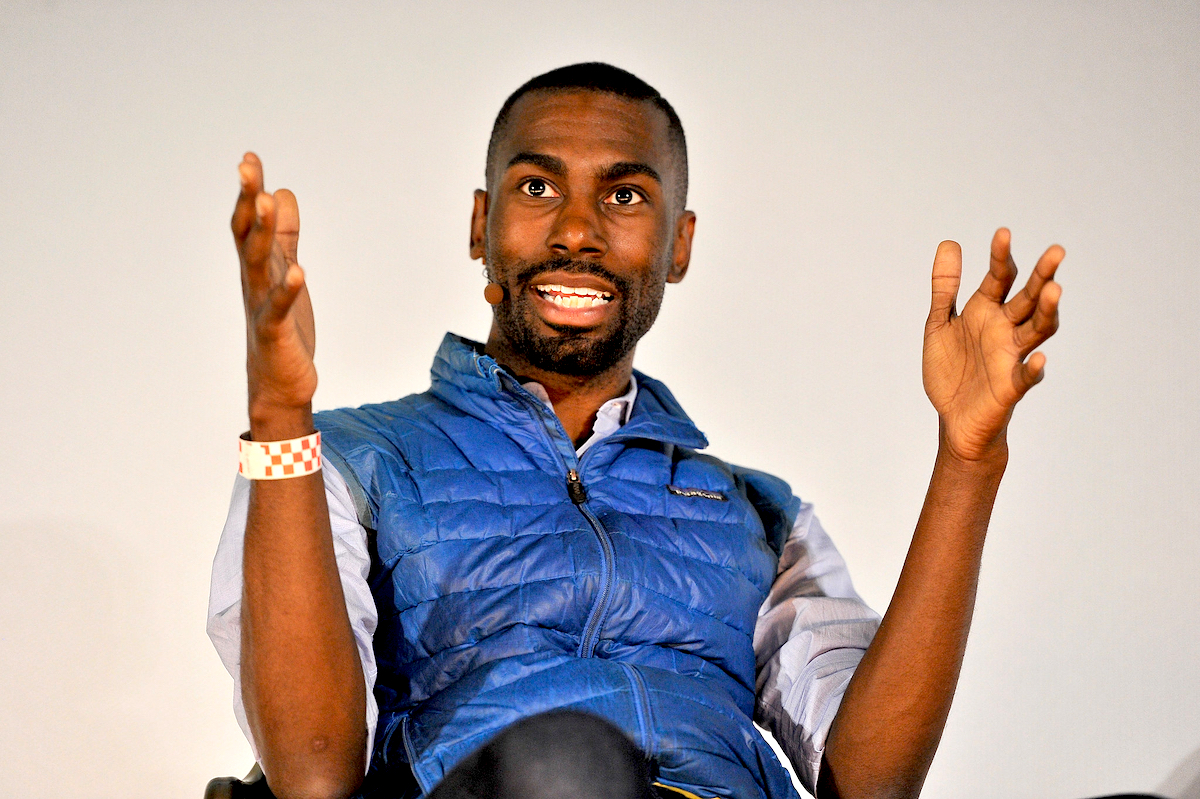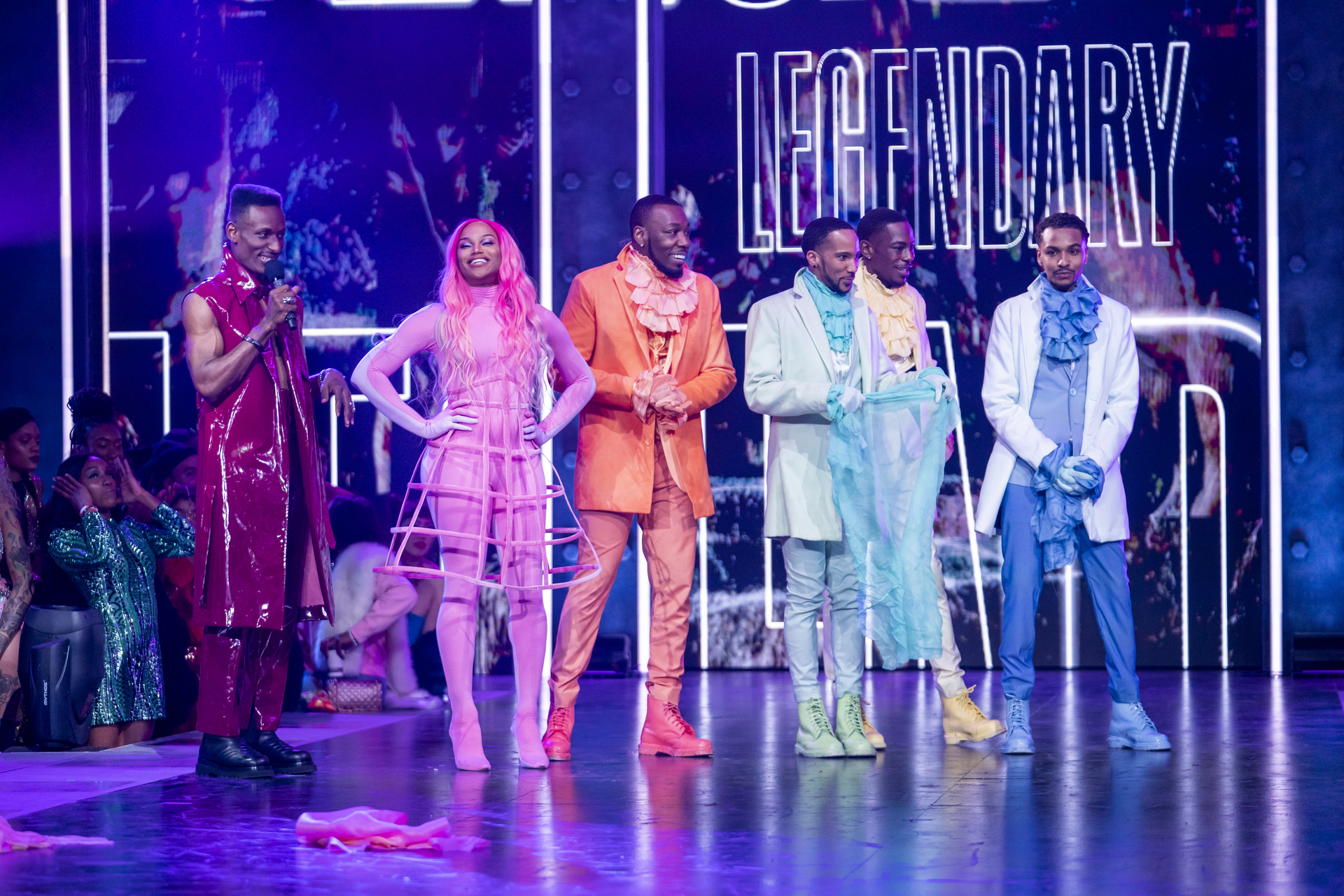The film version of the Broadway hit “Hamilton” was released last Friday on the streaming service Disney+.
“Hamilton” tells the story of American Founding Father Alexander Hamilton from his arrival in what would eventually be the United States to his death at the hands of his rival Aaron Burr. The show is unique in its incorporation of hip-hop, R&B and soul combined with a classic Broadway sound. It was praised by critics and fans who weren’t able to see the play in person were grateful for the opportunity to watch it on screen. However, with the release of the film, much of the backlash regarding the musical has resurfaced and some have criticized the show for being historically inaccurate, simplistic, and even “anti-Black.”
The outright rejection of the play and the inclination that the show does more harm than help was a bit of a shock to me. I always saw the musical as a unique way of telling a somewhat familiar story, but also a commentary on how American politics and social ambitions haven’t changed much in the past 300 years. While I believe many of the criticisms about “Hamilton” are justified, I also believe that some of them are either invalid or miss the point.
As someone who enjoyed the music of “Hamilton” immensely and was glad to finally see the musical on stage, I wasn’t too surprised that people had criticisms of the characters’ depictions. I recognized that all of these figures in American history— Alexander Hamilton, George Washington, Thomas Jefferson— all did despicable things in the name of creating a new nation based on racist and sexist ideologies. Some critics have even said that the musical includes “slavery-erasure”, claiming it’s never brought up in the show. Some critics also claim that the use of hip-hop and actors of color makes the atrocities that these historical figures have committed easier to swallow for white audiences. At the very least, the play has been criticized for its general historical inaccuracies, such as Philip Schuyler having no sons (making the romantic conflict between Hamilton and Angelica Schuyler more dramatic) or that the election of 1800 was a landslide. There is the added irony of using hip-hop, a genre invented in low-income neighborhoods by black and brown people, in a musical that mostly wealthy white people see.
But “Hamilton” does not paint its characters as noble heroes. The musical depicts all its characters in an unflattering way and I think that while Hamilton is the protagonist of the story, he is no hero. He is portrayed as cocky, arrogant, impulsive, and unfaithful. Even George Washington, a character who is largely romanticized in the play, admits to his shortcomings in the song “One Last Time.” The issue of slavery, while not mentioned at length, was the major focus of one of Hamilton’s allies in the play, John Laurens. The film version features a song that was omitted from the cast album, “Laurens’ Interlude,” which explains how Laurens died trying to create the first all-Black battalion and made strides to abolish slavery.
Bottom line: the musical portrayed almost no one as a hero—especially Alexander Hamilton. He came off poorly as a headstrong, egotistical, adultering character among other things. So yes, he was no hero. The brilliance of the musical is that it easily conveyed flaws&achievements.
— Jeffrey Ballou (@jpballoujourn1) July 4, 2020
The issue that I have with most of these critiques is that they focus on the real history of the story, even though it’s clear that the play is supposed to act as historical fiction. This leads me to wonder, should we be critiquing art with an emphasis on accuracy? Or should we focus on its commentary on contemporary life? I believe, like every other piece of media made for entertainment purposes, that “Hamilton” shouldn’t be approached as a history lesson. “Hamilton” creator Lin-Manuel Miranda has been very open about the play’s inaccuracies and the changes that he has made to history for the sake of drama and clear storytelling. Some have actually described “Hamilton” as “fan-fiction,” as its creator purposefully inserts people of color to illustrate the similarities between these historical figures trying to provoke change and modern day Black and brown people attempting the same thing. I believe that “Hamilton” at its core is a form of commentary, not a by-the-book retelling of historical events. I also believe that Hamilton’s creation of iconic roles for people of color should be commended as this is rare for original musicals. Saying that the musical is “anti-Black” seems hyperbolic, as its purposeful casting is meant to highlight Black voices in theater. I also can’t help but think that much of the backlash surrounding the musical is due to its extreme popularity. There are plenty of pieces of media within entertainment that have questionable themes, but “Hamilton” has received a considerable amount of focus.
I have a lot of thoughts about Hamilton and the way it idealizes the founders, and how such a brilliant musical dangerously elides they realities of slavery but Leslie Odom Jr. put his FOOT in that performance. So talented.
— roxane gay (@rgay) July 4, 2020
i understand the arguments against hamilton but when will you ever see so many latinx and Black actors on broadway again? when have you ever? and not in a Black struggle play (color purple )? and it’s not a history lesson so don’t get all your info from it
— kim (@kimrice060300) July 4, 2020
The amount of vitriol directed at Hamilton on this website today is a reminder that, for some self-proclaimed radicals, the substance of their politics simply consists in disliking or denouncing anything that is widely beloved.
— Yascha Mounk (@Yascha_Mounk) July 4, 2020
At the end of the day, I believe that the discussions about “Hamilton” and its place in the media and our history are good things. It forces us to reflect on our past actions and how history should impact our decision making in the future. However, at a time where our value as citizens based on our race is being questioned, and the people in power are blatantly ignoring our pleas for change, I think it’s important to pick and choose our battles wisely. Proclaiming that a hip-hop musical is detrimental to our society seems a bit extreme.






